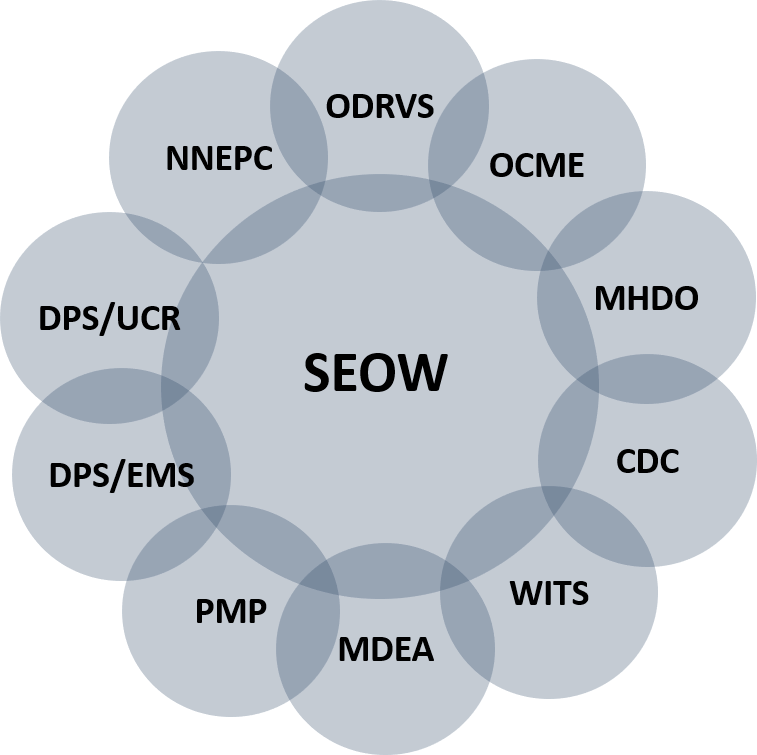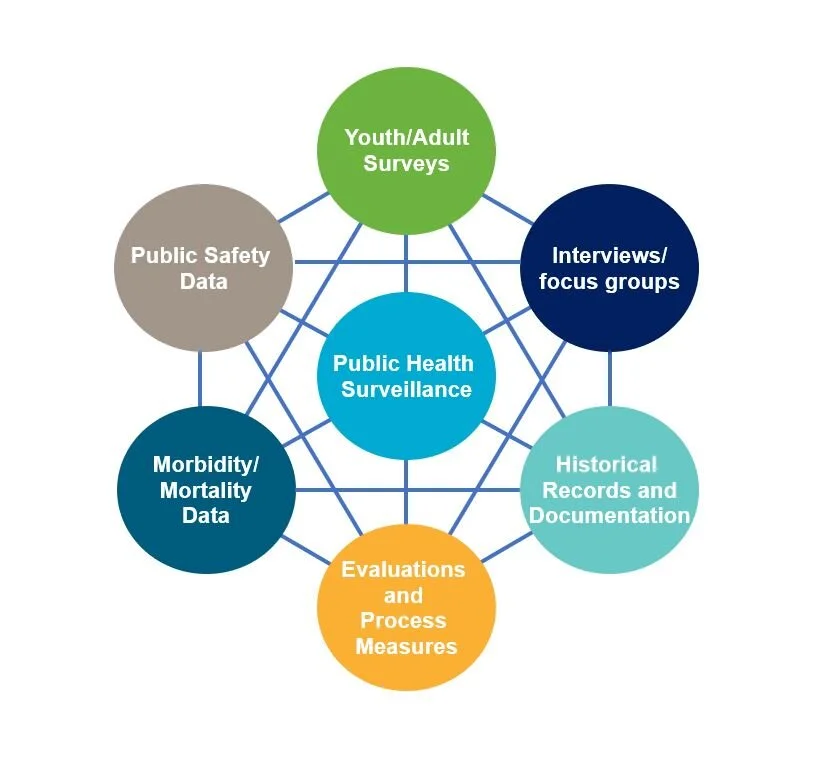
About Us
Purpose
The State Epidemiological Outcomes Workgroup (SEOW), established in 2005, serves as a clearinghouse for substance use and mental health related data indicators. The SEOW was created under the federal Substance Abuse and Mental Health Services Administration (SAMHSA) Partnership for Success grant, focused on the prevention of substance use among youth and young adults. The program is supported and managed by the Maine Center for Disease Control and Prevention (Maine CDC).
The SEOW has six primary objectives:
Identify, organize, analyze and share key substance use prevention and related behavioral health indicators data;
Create data-guided products that inform prevention planning/policies;
Train communities in understanding, using and presenting data in an effective manner;
Build state and local level monitoring and surveillance systems;
Help secure funds and measure progress; and
Provide an opportunity for networking and collaboration.
Identify Data Sources and Data Gatekeepers
The SEOW works to identify key state-level stakeholders and data keepers across public health networks.
Align and Leverage
Stakeholders help to provide data and identify current substance use trends which are reported in a variety of ways via SEOW Dashboards, topical Fact Sheets, and Quick Reference Guide.
A Triangulation Approach
For effective prevention planning, we cannot rely on data from a single organization to assess the status of problems related to substance use or mental, emotional, and behavioral (MEB) disorders. In reality, data across multiple systems (health, criminal justice, education) yield a fuller understanding of the consequences and effects of limited prevention efforts. Every year the SEOW publishes comprehensive statewide data regarding substance use consumption, consequences, and contributing factors in Maine.




